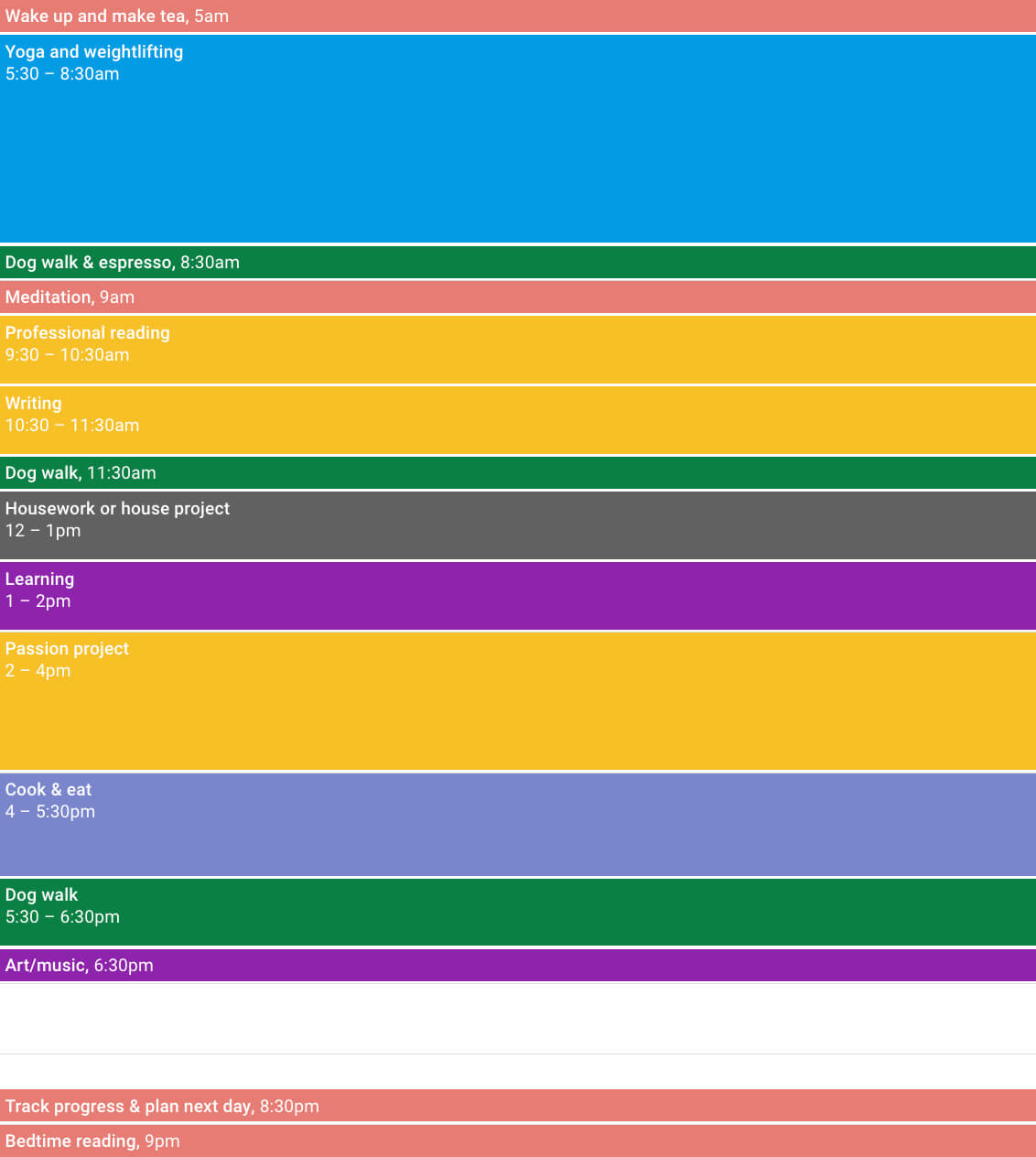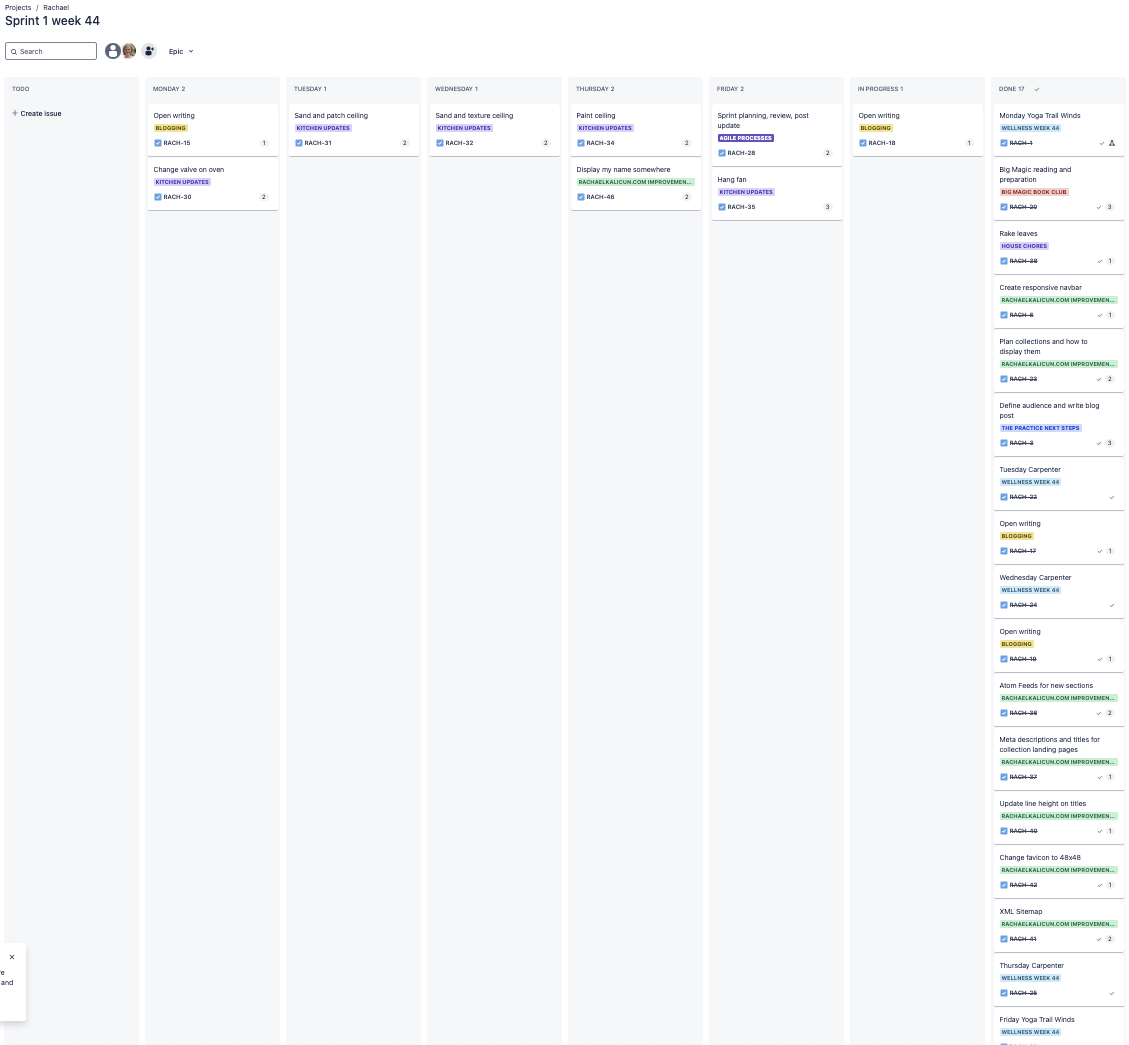Experimenting with the Maker's Schedule Using Agile
Nearly a year before I left my job, I began to seriously consider what life would be like afterward. I read a couple of books about living an intentional life, Living Forward and Designing Your Life, and I spent a significant amount of time working through their exercises to identify what mattered most to me. Then, I created a new Google Calendar for life after my job, organizing tasks into meeting blocks. This was how I envisioned today back then.

But from my very first day without a job, I couldn’t stick to this format and stay productive. After recently reading Paul Graham’s essay, “Maker’s Schedule, Manager’s Schedule”, I realized that my calendar was set up like a manager’s schedule, not a maker’s schedule even though my life is in the maker’s lane now. At work, days were structured around meeting blocks so it felt natural to arrange my days this way. I thought if I could do all those things, I’d make great progress on a variety of tasks. Such a granular schedule works if you’re attending meetings all day, but if you actually want to create or even learn, it’s way too rigid and has too much context switching. I’ve neglected many things on my special calendar so it’s time to experiment with changing the process.
It became clear to me that I should start an agile practice, both to scratch the itch of certain project-management aspects of my job that I enjoyed and miss and to accomplish more of the things that were important to me when I created my calendar. I started last Monday and set up Sprint 1. Here it is in its completed state.

Some initial positive observations from last week’s experiment include being more productive since projects (epics) were broken down into smaller tasks and assigned to specific days. Glancing at the board to see what was scheduled for the day made it very clear what I should be doing. I also got hits of satisfaction as I moved tasks across the board.
On the negative side, I neglected specific buckets of work, but that would have been the same regardless of this process. Also, a couple of days were completely derailed by scheduled calls and in-person meetings. Paul Graham mentions in the same essay how a meeting can lower morale and productivity for makers for an entire day. I’ve found this to be true both in my job and in my new life.
Although I envisioned a solo stand-up process and retro, I didn’t manage to follow through on them. Luckily, there’s always a chance to improve, and I plan to refine how these processes will work this week.
I’ll report on how Sprint 2 went, but I’m confident it can only get better from here.
